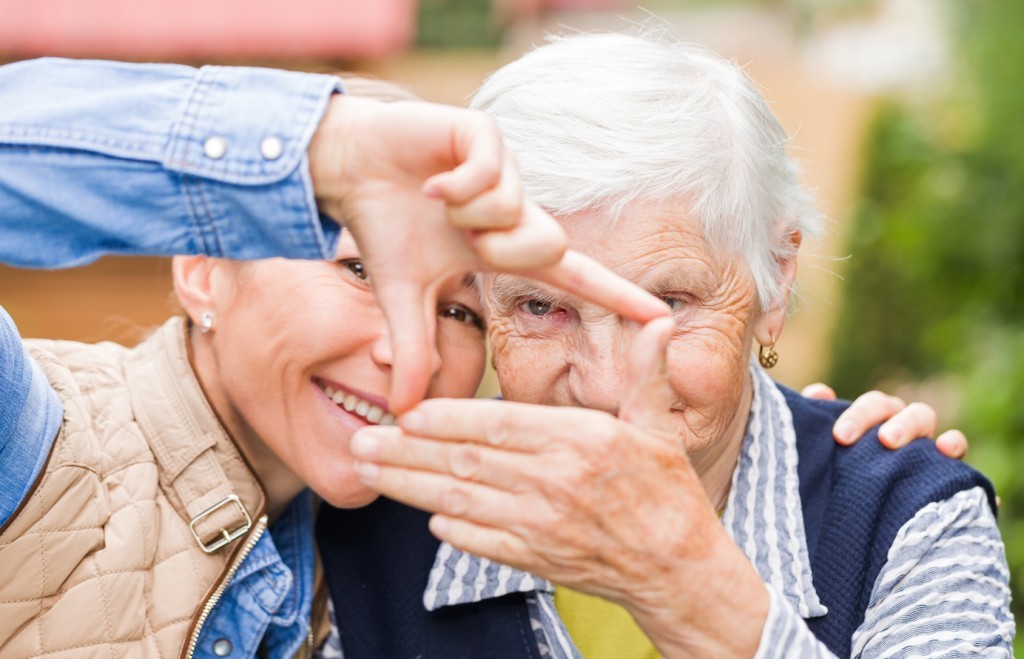The impact of one individual’s health can have a ripple effect on an entire family. Family members are caring for their loved ones in the home more today and for longer periods of time than ever before. If you are the primary caregiver for a dependent loved one, you are at risk for developing caregiver stress and burnout. Healthcare professionals often define caregiver stress as a cycle of exhaustion, and emotions such as guilt, anger, or sadness which results from the continual unrelieved caring of a chronically ill loved one. Being a caregiver is challenging and can strain even the most capable person!
There are approximately 25 million caregivers to frail older adults in the United States who require help with activities of daily living and around the clock supervision. Caregivers may not recognize the symptoms of caregiver burnout in themselves because they often become desensitized to their symptoms over time. Symptoms of caregiver strain and burnout often mimic symptoms of PTSD and depression. Listed below are some of the symptoms of caregiver strain and burnout.
- Fatigue and exhaustion
- Withdrawal from normal activities
- Irritability and short-tempered
- Chronic pain issues
- Difficulty sleeping (insomnia)
- Change in appetite or lack of appetite
- Trouble concentrating
- Feeling numb, hopeless, or helpless
- Inappropriate use of alcohol or drugs for coping
- Neglecting your own physical, social, and emotional well-being
If untreated, caregiver stress often leads to depression, anxiety, and physical illness for the caregiver if stress reducing strategies are not employed. Caregivers may push away friends and family when they need them the most. This article will provide some suggestions and resources for caregivers that may help to reduce caregiver strain.
Ask for Help and Let Others Help You
Change your thought pattern and belief that only you can take care of your loved one the “right way.” Caregiving is exhausting and you must admit you will need help and a team of people to support you. Ask friends and family to provide you with regular well needed breaks, and never refuse an offer of assistance. Make a plan ahead of time with regards to who will help care for your loved one if you become ill yourself. Plan regularly scheduled breaks for yourself into your weekly schedule.
Respite Care
Respite care is allowing someone else to take care of your loved one in order to give you a break, and can involve short amounts of time from a few hours to extended time like a week or two in order to give caregivers a longer break such as a vacation. There are likely businesses as well as non-profit organizations in your area which provide respite services through venues such as home companions, homemakers, home health aides, adult day care, and overnight care in a facility such as a nursing home.
Find Emotional Support in a Group
Caregivers need to find other caregivers to share ideas and support one another. There are likely local support groups that meet regularly in your area. If a support group is not available, even just talking to a close friend or a counselor will provide an outlet to express what you are going through inside. There are caregiver discussion chat rooms on the internet such as the Caregiver Action Network which is a web site that gives caregivers a chance to share their stories and feelings and connect with other caregivers. Many web sites offer tips for preventing caregiver stress and burnout. See below for Resources and Useful Links.
Become Educated
Caregivers need to gain knowledge of the disease process of their loved one, caregiving tips, and the resources that are available in their communities to help support them. The Eldercare Locator website is a public service of the U.S. Administration on Aging, and assists caregivers in finding resources for older adults in any U.S. community. Just one phone call (1-800-677-1116) or website visit will provide an instant list of resources to help older persons live independently in their communities longer. This service links caregivers with state and local area agencies on aging and community organizations that serve older adults and their caregivers.
Self-Care
Take care of your own health and make your own physical, mental, social, and spiritual health a priority. Visit your physician or nurse practitioner regularly for preventive care. Learn relaxation techniques and stress management methods such as relaxed, diaphragmatic breathing, guided imagery & visualization, meditation, yoga, and prayer. Find a creative hobby or an outlet for expressing yourself such as journaling. Make sure to get regular exercise and adopt a healthier diet (stockpile healthy snacks for yourself and your loved one).
In conclusion, there are many rewards of family caregiving- including the creation of loving, rich experiences and memories, and being able to give back to loved ones who sacrificed for them earlier in life. It is important for caregivers to take care of themselves, become educated as to the resources and tools at their disposal, and find ways to balance their responsibilities in order to maintain their own mental and emotional health to prevent caregiver burnout.
Resources and Useful Links
Alzheimer’s and Dementia Caregiver Support – A practical resource for Alzheimer’s Disease and Dementia caregivers.
Caregiver Action Network – CAN is a non-profit organization that provides education, support, and resources to family caregivers across the nation.
Family Caregiver Alliance – FCA is a central source of information on caregiving and long-term care issues for policy makers, service providers, media, funders, and family caregivers across the United States.
National Family Caregiver Support Program – A federal program that provides grants to states and territories for services that support family and informal caregivers and the ones they love.
National Alliance for Caregiving – NAC is a non-profit coalition of national organizations seeking to advance family caregiving through research, innovation, and advocacy.
